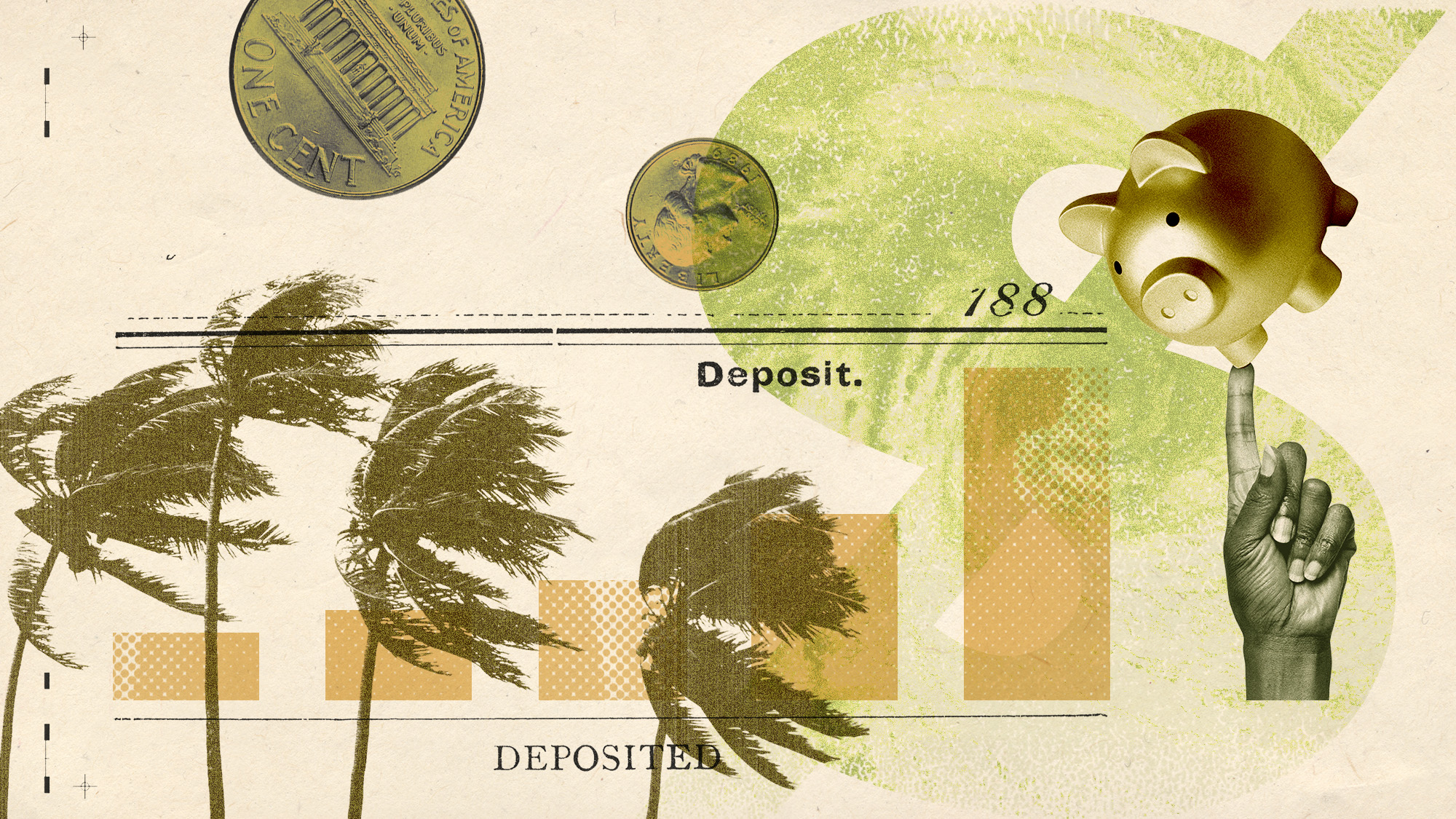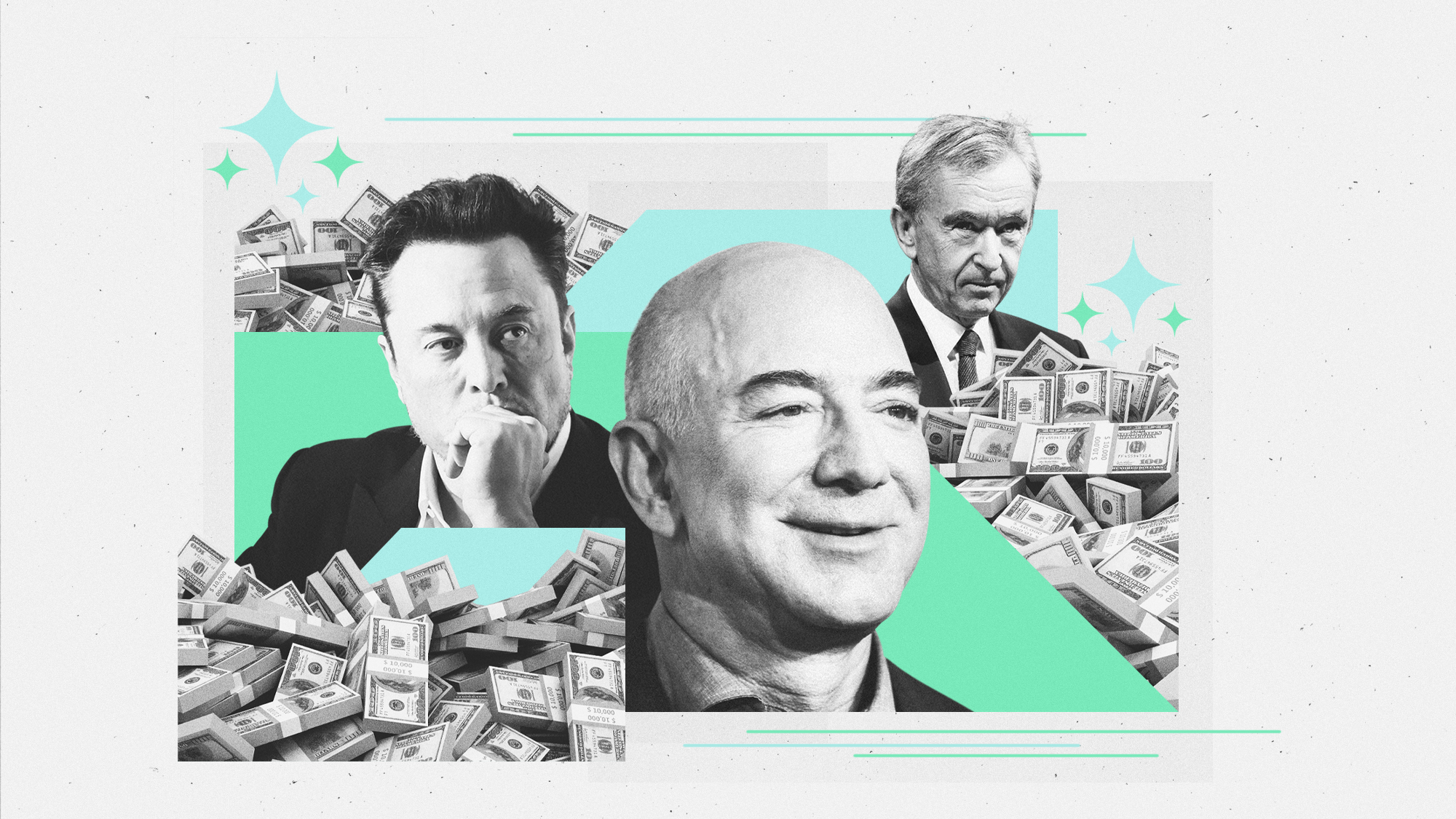What's the big deal about Ford's new F-150 Lightning truck?
The best-selling vehicle in America is going electric. Here's why it matters.


A free daily email with the biggest news stories of the day – and the best features from TheWeek.com
You are now subscribed
Your newsletter sign-up was successful
Ford says its new F-150 Lightning pickup truck will accelerate the shift away from gas-powered vehicles. Is it really a game-changer?
What's the big deal about the Lightning?
It is an all-electric version of the best-selling vehicle in America. For 44 years, Ford's F series trucks have been the country's favorite — 900,000 of them are sold every year, and the line brought in $42 billion in revenue in 2019, more than McDonald's or Nike. If Ford's Lightning, out next year, can move electric vehicles (EVs) from the niche consumer market into the mainstream, it could prove a tipping point in America's shift away from fossil fuels and, in the long-term, help significantly reduce the country's emissions. The transition to EVs is a crucial part of President Biden's climate plan, which aims to cut emissions to 50 percent of 2005 levels by 2030, and reaching net-zero emissions by 2050.
The Week
Escape your echo chamber. Get the facts behind the news, plus analysis from multiple perspectives.

Sign up for The Week's Free Newsletters
From our morning news briefing to a weekly Good News Newsletter, get the best of The Week delivered directly to your inbox.
From our morning news briefing to a weekly Good News Newsletter, get the best of The Week delivered directly to your inbox.
Is it affordable?
The Lightning's base price is $39,974, putting it within a few hundred dollars of the Tesla Model 3 electric sedan. But unlike Tesla's first mass-market vehicle, the Ford Lightning qualifies for federal incentives of $7,500, bringing its cost to just under $32,500. Buyers in some places will qualify for additional tax breaks of up to $5,000 in states such as California, New York, and New Jersey. That would make the Lightning one of the lowest-priced full-size pickups available — even lower than the F-150's gas-powered cousin, which starts at $28,940. "The F-150 will put electric vehicles in a totally different realm," said Michael Ramsey, a Gartner analyst, in The New York Times. While other electric trucks are expected to hit the market in coming months, the Lightning is the cheapest.
Is the price the only selling point?
Not at all. Others include versatility and power, which may beat out energy efficiency as top priorities for truck lovers "who have a lot of stuff to haul," writes Neal E. Boudette at The New York Times. The Lightning base model will be able to travel 230 miles on a full charge and pull 7,700 pounds. The extended range version will go about 300 miles and tow up to 10,000 pounds, putting it in line with the conventional 2021 Ford F-150's towing capacity of 5,000 to 11,300 pounds. Ford is also pitching the Lightning as a mobile power source for the self-sufficient. Drivers will be able to plug into its 11 outlets to power tools at a job site, for example, or run lights and music at a tailgate party. The extended-range Lightning also has enough juice to keep the electricity on for three days in a typical home during a blackout. On top of this, it looks like a regular old truck. "This is no pokey, jelly-bean-shaped car designed for tree-huggers. Nor is it a spaceship-like ride for Bay Area tech bros," writes Catherine Rampell in The Washington Post, adding that the Lightning could "appeal to red-staters and blue-collar workers."
A free daily email with the biggest news stories of the day – and the best features from TheWeek.com
How important is electrifying the U.S. vehicle fleet?
Scientists say reducing pollution from cars and trucks is key to fighting climate change. Tailpipe pollution is the biggest source of greenhouse-gas emissions in the United States, with cars and trucks belching out about 20 percent of U.S. emissions, more than any other part of the economy. While EVs produce no direct emissions, making them and charging them does. But they are responsible for lower carbon emissions over their lifetime than cars with internal-combustion engines — and the gap widens as the country relies less and less on coal-fired power plants and more on green energy, such as solar and wind. The average EV is as environmentally friendly as a gasoline vehicle would be if it got 88 miles per gallon, according to the Union of Concerned Scientists. That's far cleaner than the average car's range of 31 mpg, or the typical truck, at 21 mpg. Still, not everyone is sold on the Lightning.
What are the roadblocks?
For starters, there's the price. It's true that the F-150 Lightning, when you factor in the incentives, is competitive with its fuel-burning cousins. But those tax credits will run out once Ford has sold 200,000 electric vehicles. And the high-end extended battery Lightnings, fully loaded, are more than $90,000, which is far from a mass-market price tag. It's more in line with electric pickups soon to be offered by rivals like startup Rivian, General Motors, Chevrolet, and Tesla. Another potential problem is safety. The F-150 Lightning will weigh in at 6,500 pounds — 1,800 pounds of which is battery. That's roughly as heavy as the massive Hummer H2 made in the mid-2000s. The Lightning has advanced safety features, including sensors and auto-braking, but its heft would be an issue in collisions with pedestrians, cyclists, or smaller cars. But some of the Lightning's biggest problems are in Washington.
How could politics stand in the way?
The success of the Lightning and other EVs hinges on infrastructure that doesn't exist yet. The nation will need to invest billions on charging stations along interstates and highways before drivers who go electric can cruise with confidence that they will be able to power up anywhere they need to, like drivers of gas-burning vehicles can. Biden is trying to address that need in his $1.7 trillion infrastructure package. The proposal includes $174 billion for supporting the EV transition, including helping to build 500,000 charging stations and providing new incentives to buy EVs. But Republicans say Biden's plan is way too expensive. Senate Minority Leader Mitch McConnell calls it a wasteful "liberal wish-list," suggesting Republicans could try to block any attempt to include EV facilities in a compromise infrastructure bill. And the transition to EVs will stall if drivers can't count on finding a charging station whenever they need one. Private companies are busy building a network of charging stations, but there are gaps in coverage. And consumers will be slower to make the leap and buy an EV if the infrastructure isn't there first, said Michelle Krebs, Autotrader executive analyst, in The Guardian. "That's key," Krebs said. "They have got to have the charging infrastructure in place or this will all go kaput."
Harold Maass is a contributing editor at The Week. He has been writing for The Week since the 2001 debut of the U.S. print edition and served as editor of TheWeek.com when it launched in 2008. Harold started his career as a newspaper reporter in South Florida and Haiti. He has previously worked for a variety of news outlets, including The Miami Herald, ABC News and Fox News, and for several years wrote a daily roundup of financial news for The Week and Yahoo Finance.
-
 The ‘ravenous’ demand for Cornish minerals
The ‘ravenous’ demand for Cornish mineralsUnder the Radar Growing need for critical minerals to power tech has intensified ‘appetite’ for lithium, which could be a ‘huge boon’ for local economy
-
 Why are election experts taking Trump’s midterm threats seriously?
Why are election experts taking Trump’s midterm threats seriously?IN THE SPOTLIGHT As the president muses about polling place deployments and a centralized electoral system aimed at one-party control, lawmakers are taking this administration at its word
-
 ‘Restaurateurs have become millionaires’
‘Restaurateurs have become millionaires’Instant Opinion Opinion, comment and editorials of the day
-
 Why the catastrophe bond market is growing
Why the catastrophe bond market is growingThe Explainer The bonds pay for climate change disaster damages
-
 Why are home insurance prices going up?
Why are home insurance prices going up?Today's Big Question Climate-driven weather events are raising insurers' costs
-
 Christmas trees: losing their magic?
Christmas trees: losing their magic?In the Spotlight Festive firs are a yuletide staple but are their days numbered?
-
 The ocean's blue economy is growing. Can the tide continue to rise?
The ocean's blue economy is growing. Can the tide continue to rise?The Explainer The big blue is bringing in the green
-
 The rise of the world's first trillionaire
The rise of the world's first trillionairein depth When will it happen, and who will it be?
-
 The surge in child labor
The surge in child laborThe Explainer A growing number of companies in the U.S. are illegally hiring children — and putting them to work in dangerous jobs.
-
 Your new car may be a 'privacy nightmare on wheels'
Your new car may be a 'privacy nightmare on wheels'Speed Read New cars come with helpful bells and whistles, but also cameras, microphones and sensors that are reporting on everything you do
-
 Empty office buildings are blank slates to improve cities
Empty office buildings are blank slates to improve citiesSpeed Read The pandemic kept people home and now city buildings are vacant
